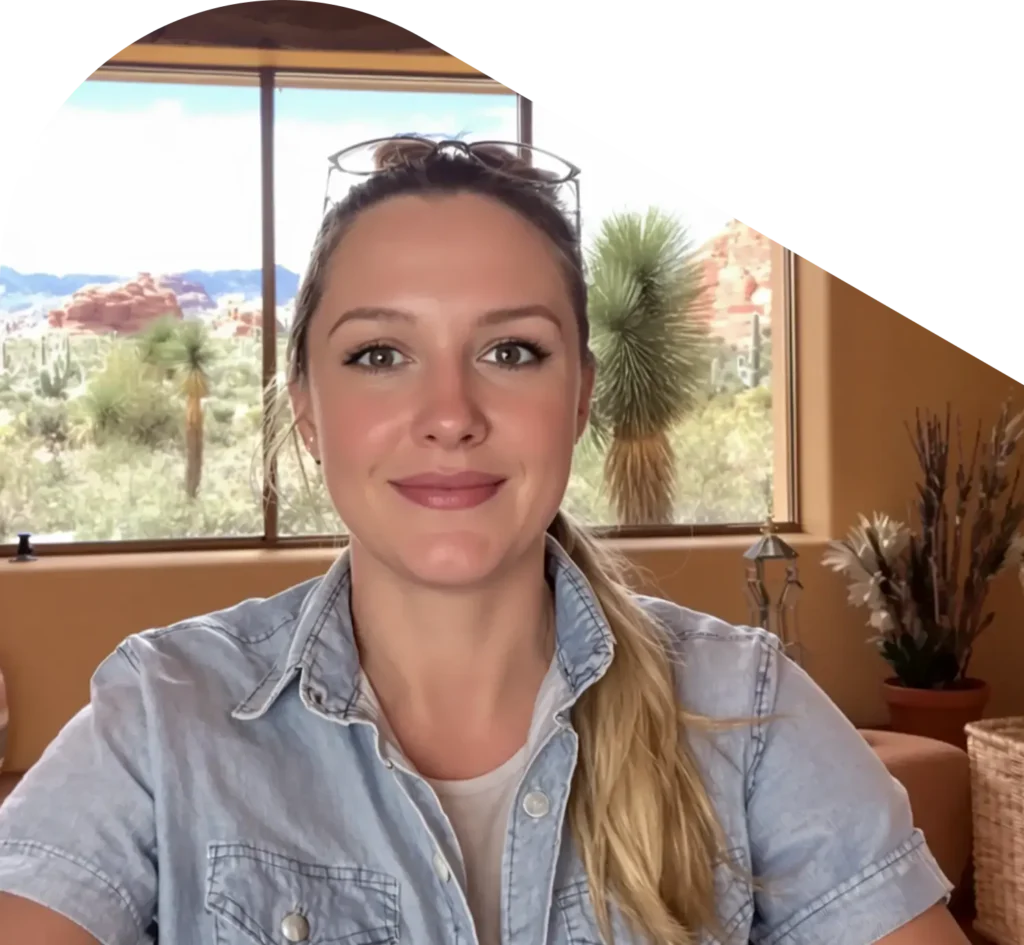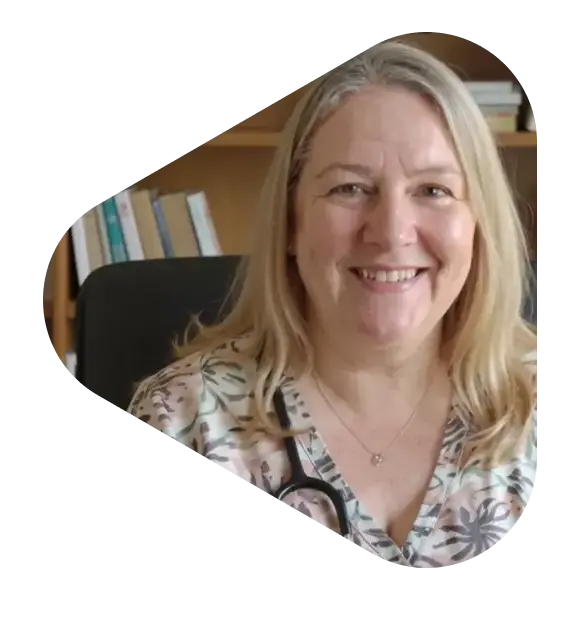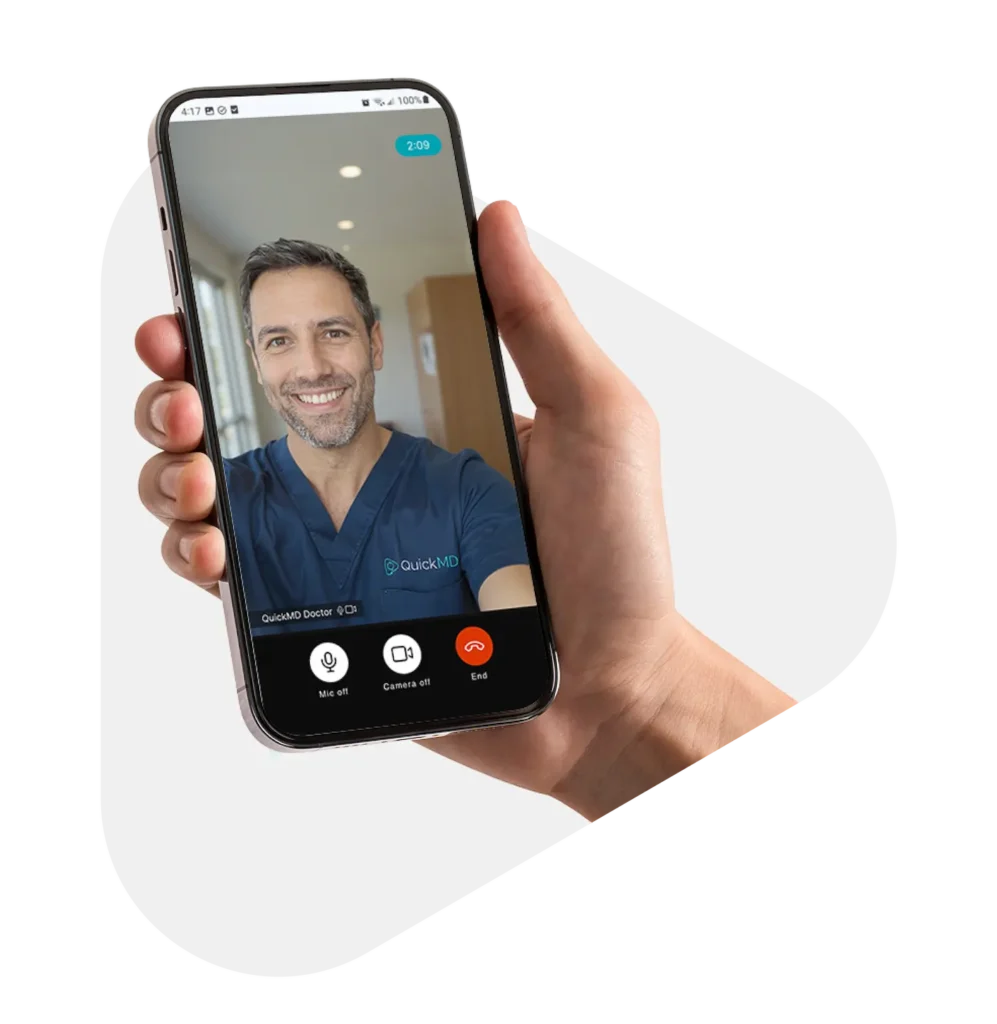Medication-Assisted Treatment in Oklahoma
QuickMD offers private, judgment-free addiction treatment online in Oklahoma for substance use disorders, including treatment with Suboxone®.
Book now

Manage opioid cravings and withdrawal with Suboxone® treatment
Learn about treatment
Why choose QuickMD for addiction treatment in Oklahoma?
Getting care at QuickMD is simple, secure, and accessible. We eliminate the hassle of waiting rooms and insurance. Here’s why thousands of patients trust us for quick, compassionate care:
Same-day
appointments
No insurance
required
Licensed &
certified providers
100% online
appointments
Over 100K+
patients served
Nomemberships
Start treatment with Suboxone® today
At QuickMD, getting your Suboxone® prescription is simple. Schedule a quick phone or video appointment with a licensed provider and we’ll send your prescription directly to your pharmacy.
Why virtual addiction treatment matters in Oklahoma
Sometimes the moment someone decides to get help is quiet and fleeting, after a difficult night, during a long drive, or while sitting alone with a feeling that things can’t keep going the way they are. But in Oklahoma, that moment doesn’t always line up with access to care. And when help is hard to reach, the opportunity can slip away.
From 2019 to 2023, something shifted in Oklahoma. The number of lives lost to unintentional overdoses more than doubled. Behind that 129% increase are people whose absence is still felt every day—sons, daughters, coworkers, best friends. In 2023, fentanyl was found in nearly every opioid-related death, often without the person even knowing they were using it. Methamphetamine was involved in most other cases, making the risks even more unpredictable. These aren’t statistics on a page. They’re the quiet emergencies happening in kitchens, cars, and bedrooms all over the state.
Even when someone is ready to seek help, the system doesn’t always meet them there. For some, it’s not a lack of willingness. It’s the sense that care isn’t built for their reality.
Virtual care changes that. It shifts the experience of seeking help from something public and difficult to something private and manageable, and that subtle shift matters.
How access to addiction treatment is improving in Oklahoma
Access to addiction care in Oklahoma is changing and for the better. In recent years, state lawmakers, tribal leaders, and advocacy organizations have worked together to expand treatment options, reduce stigma, and bring care to more people across the state.
In 2021, Senate Bill 511 marked a turning point. By legalizing syringe exchange and naloxone distribution programs, the law gave harm reduction services a foundation to operate openly across Oklahoma. These programs do more than save lives. They offer trusted contact points for people who’ve often been turned away elsewhere. For many, that first safe interaction becomes the beginning of treatment.
Tribal nations are also leading the way. In 2023, the Cherokee Nation announced an $18 million investment to build a 17,000-square-foot residential treatment center. This residential treatment center is just one part of the Cherokee Nation’s historic $100 million mental health investment through the Public Health and Wellness Fund Act. The facility will offer culturally grounded care for Cherokee citizens facing substance use disorders, delivering care in a way that reflects the values, history, and healing traditions of the community it serves.
Additionally, local advocacy groups like Healthy Minds Policy Initiative continue to shape smart policies for addiction and mental health care. Their legislative work has helped drive support for crisis response systems, expanded Medicaid reimbursement for addiction treatment, and pushed for increased investment in behavioral health infrastructure across the state.
Our Medication-Assisted Treatment in OK
At QuickMD, we provide access to Medication-Assisted Treatment (MAT) in a way that centers your comfort, your privacy, and your readiness to begin. Through a secure video visit, you’ll meet with a licensed provider who listens, really listens, not just to symptoms, but to your story and your goals.
For many in Oklahoma, especially in rural areas, the nearest clinic might be hours away or have a long waitlist. We’re here to change that. Whether you’re in a city or a small town, our virtual MAT program makes it possible to start care without uprooting your day or your life. No long drives. No waiting rooms. Just the support you need, when you’re ready for it.
Tips for managing addiction treatment
1. Keep your appointments, even when you’re not sure you want to
Some days may feel heavier than others. On those days, showing up, whether for a check-in, therapy, or support meeting, is a win. You don’t have to feel motivated to stay consistent.
2. Set reminders to take your medication
Life gets busy. Setting daily alarms or using a pill organizer can help you stay on track with Suboxone® or other prescribed medications, especially during early recovery when structure matters most.
3. Journal your thoughts and progress
Writing things down can help you process emotions and recognize patterns. It’s also a great way to look back and see how far you’ve come, even on days when progress feels invisible.
4. Be honest with your care team
Your QuickMD provider is here to support you, not judge you. If something’s not working, like side effects, cravings, or emotional struggles, sharing that openly helps us adjust your care to fit you better.
5. Get moving when you can
Even light activity can help boost your mood and reduce stress. Maybe you walk around the block or stretch while watching a show. Movement can be a powerful tool to support your mental health during recovery.
We also offer these services in Oklahoma
At QuickMD, we’re committed to bringing convenient, affordable, and compassionate virtual care to patients across Oklahoma. In addition to addiction treatment, we proudly offer:
- Medical Weight Loss
- Urgent Care Services
- Virtual Counseling Sessions

Medical Weight Loss
Our online weight loss treatment helps you explore options like Ozempic® and Mounjaro® with licensed providers, offering support tailored to your health goals.

Urgent Care Services
Get quick, compassionate care for common illnesses online, 7 days a week. Anytime, anywhere.

Virtual Counseling Sessions
Talk to licensed providers to support your mental well-being on your terms, when and where you need it.

Medical Weight Loss
Our online weight loss treatment helps you explore options like Ozempic® and Mounjaro® with licensed providers, offering support tailored to your health goals.

Urgent Care Services
Get quick, compassionate care for common illnesses online, 7 days a week. Anytime, anywhere.

Virtual Counseling Sessions
Get quick, compassionate care for common illnesses online, 7 days a week. Anytime, anywhere.
Start treatment with Suboxone® today
At QuickMD, getting your Suboxone® prescription is simple. Schedule a quick phone or video appointment with a licensed provider and we’ll send your prescription directly to your pharmacy.
Frequently asked questions about MAT in Oklahoma
What is the Oklahoma Opioid Abatement Fund?
The Oklahoma Opioid Abatement Fund was created to help communities recover from the damage caused by the opioid crisis. The money comes from legal settlements with companies that made or sold opioids. These funds, totaling hundreds of millions of dollars, are being used to support programs across the state that focus on prevention, treatment, and recovery.
The goal is to use this funding to repair the damage caused by the opioid addiction epidemic and improve long-term outcomes for Oklahoma residents.
What does Oklahoma House Bill 1343 mean?
House Bill 1343, introduced in 2025, is a proposal that would shut down the Oklahoma Department of Mental Health and Substance Abuse Services. If passed, the Department of Corrections would take over its responsibilities, including addiction and mental health services. While some believe this would make government services more efficient, many health experts and advocates worry it could hurt people who need care by making services harder to access and more focused on punishment than healing.
What is the substance dependence rate in Oklahoma?
In 2022, Oklahoma reported an age-adjusted drug overdose death rate of 30.7 deaths per 100,000 people, according to the CDC. This rate is higher than the national average and indicates a significant impact of substance use disorders within the state.
While this statistic reflects overdose mortality rather than the prevalence of substance dependence, it underscores the severity of the substance use crisis in Oklahoma. High overdose death rates often correlate with higher rates of substance dependence and highlight the urgent need for accessible, effective treatment options.


